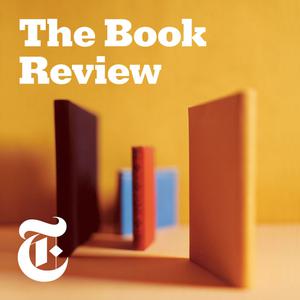
The Open Ears Project
WQXR & WNYC Studios
Part mixtape, part sonic love-letter, The Open Ears Project is a podcast in which people share the classical track that means the most to them and why. Created by journalist and former WQXR Creative Director Clemency Burton-Hill, each episode offers a brief and soulful glimpse into human lives, helping us to hear this music — and each other — differently. Guests from the worlds of film, books, dance, comedy and fashion as well as firefighters, taxi drivers, and teachers share cherished musical memories and remind us that extraordinary things happen when we simply stop and listen. Transcripts are posted to individual episode pages as they become available. The Open Ears Project is produced by WQXR and WNYC Studios.
- 17 minutes 52 secondsMartha Lane Fox on Perseverance and Beethoven
If anyone can claim the title of Renaissance Woman, it is Martha Lane Fox. Though she gained prominence during the dot-com boom of the 1990s, her career has since led her serve as the Chancellor of Open University in the United Kingdom; to sit on the boards of companies likeChanel, WeTransfer, and Twitter; and, in 2013, she became the youngest female member to serve in the House of Lords.
In this episode, Lane Fox reflects on her journey of recovery after a car accident in Morocco and explains how the “Prisoners’ Chorus” from Beethoven’s “Fidelio” informs her passion for prison reform.
This Deutsche Grammophon recording of Beethoven’s “Prisoners’ Chorus” from Fidelio is performed by the Vienna Philharmonic and the Vienna State Opera Chorus under the baton of Leonard Bernstein.
13 May 2024, 8:00 am - 25 minutes 31 secondsSteve Reich on Why Medieval Music Sounds So Fresh
Steve Reich is one of the most important composers of the 20th and 21st centuries. A leader in developing and popularizing what many describe as minimalist music — but which Reich has often preferred to describe as music that unfolds over a gradual process — his music helped reassert the value of tonality and sonority within newly composed concert music and influenced generations of musicians.
In this episode, Reich recalls the first time he heard the music of French medieval composer Pérotin, without whose influence some of his music “never would have happened,” and he reflects on why early music sounds so fresh to contemporary ears.
The recording of “Viderunt Omnes” featured on this episode was performed by The Hilliard Ensemble on the 1989 ECM New Series album, “Perotin.”
6 May 2024, 8:00 am - 12 minutes 32 secondsAnne-Sophie Mutter on Why Bach Is Always the Answer
“Jesu, Joy of Man’s Desiring” is one of Bach’s best known works. For acclaimed violinist Anne-Sophie Mutter, it has been part of her life since she was a child and has accompanied her through some of her life’s most important moments. As she puts it, “Bach is always the answer — for the joyous moments in life as much as for the moments where you doubt where you stand and what tomorrow brings.”
This episode features recordings of “Jesu, Joy of Man’s Desiring” performed by Daniil Trifonov on the 2022 Deutsche Grammophon album, “BACH: The Art of Life;” and by The Choir of King’s College, Cambridge on the 1998 Decca album “The King’s Collection.”
29 April 2024, 8:00 am - 16 minutes 21 secondsVíkingur Ólafsson on the Unpredictable Futurism of Rameau
All classical musicians are devoted to the art of reinterpretation — of trying to make the old feel new again. Pianist Víkingur Ólafsson actually manages to pull it off. Whether he’s performing keyboard music hundreds of years old or a piece hot off the press, one has the feeling that they’ve never heard this music before, or this music played in this way. As Ólafsson puts it, “I have this feeling that everything I do is contemporary.”
In this episode, Ólafsson reflects on some of his earliest musical memories, what it was like to grow up amid the harsh and unpredictable beauty of Iceland, and how discovering the keyboard music of Baroque composer Jean-Philippe Rameau changed his life.
To learn more about Víkingur Ólafsson and his latest recording, J.S. Bach’s Goldberg Variations, visit his website at www.vikingurolafsson.com.
This episode of The Open Ears Project had additional production assistance from Curtis Macdonald. The recording of “Le Rappel des Oiseaux” featured was performed by Víkingur Ólafsson on the 2020 Deutsche Grammophon album, “Debussy · Rameau.”
22 April 2024, 8:00 am - 19 minutes 35 secondsGarth Greenwell on Finding Refuge in the Music of Britten and Pears
By now, Garth Greenwell is an award-winning author, poet, literary critic, and teacher of writing whose novels include “What Belongs To You” and “Cleanness.” But his first creative aspiration was as a musician: He attended the Interlochen Academy for the Arts and, later, the Eastman School of Music, focusing on vocal performance.
In this episode, Greenwell recalls his introduction to music and meditates on his identity as a gay man growing up in rural Kentucky. A high school choir teacher gave Greenwell his first vocal lessons and directed him to the music of Benjamin Britten as performed by Britten’s partner, Peter Pears. Despite the grim themes of their song cycle “Winter Words,” Greenwell listened to this music over and over again, finding within it his first example of queer love.
Greenwell writes about books, music, and more at his substack To A Green Thought.
This episode contains a discussion of sexuality-based discrimination and a quote of a homophobic slur. Listener discretion is advised.
This recording of Benjamin Britten’s Winter Words is performed by tenor Peter Pears in the 1972 Decca album “Britten, Peter Pears, Benjamin Britten – Winter Words / Seven Sonnets Of Michelangelo.”
15 April 2024, 8:00 am - 21 minutes 44 secondsJennifer Egan on Chopin's Narrative Masterclass
Jennifer Egan has spent a lifetime thinking about what makes a good story — to good effect. Her novels have received many awards and recognitions, including the Pulitzer Prize for “A Visit From the Good Squad.” Its companion book and her latest work, “The Candy House,” was named one of The New York Times’s 10 Best Books of 2022.
They say that one of the best ways to become a good writer is to read, but in this episode, Egan demonstrates what writers can learn from other art forms. For her, the music of Chopin exemplifies how “surprise, inevitability, variability [and] multiple fronts of action” can craft an unforgettable narrative — even without words.
The performance of Chopin's Ballade No. 1 in G Minor, Op. 23 featured in this episode is by Krystian Zimerman and comes from his 1988 Deutsche Grammophon record, "Chopin - 4 Balladen - Barcarolle - Fantasie."
8 April 2024, 8:00 am - 13 minutes 5 secondsRowan Williams on Bach and the Daily Discipline of Silence
Rowan Williams is a British theologian and poet. From 2003-2012, he served as the Archbishop of Canterbury — a role that placed him, along with the British monarch, at the head of the Anglican Church. As one of today’s most influential religious leaders, Williams has often been the subject of both praise and controversy for his outspoken views, including as a critic of the Iraq War and a proponent for LGBTQ+ inclusion.
In the years since Williams first heard Bach’s Cello Suites as a college student, he has returned to them again and again. In this episode, Williams explores the connection between music and joy, and explains how listening to Bach feels similar to religious contemplation.
This recording of Johann Sebastian Bach’s Suite for Cello Solo No. 1 in G featured on this episode comes from Jian Wang’s 2005 Deutsche Grammophon record, “Bach: The Cello Suites.”
1 April 2024, 8:00 am - 21 minutes 3 secondsDexter Filkins on Tension, Tenderness, and Ravel
Dexter Filkins is a Pulitzer Prize-winning journalist, former Iraq War correspondent for the New York Times, and author of the bestselling book, “The Forever War.” He’s currently a staff writer for The New Yorker.
In this episode, Filkins recalls how Ravel’s music gave him respite during his “nightmare years” covering the war in Iraq. He explains how Ravel, who served as an ambulance driver during World War I, balances suffering and hope in the second movement of his Piano Concerto in G Major.
The performance of Ravel’s "Adagio" from his Concerto for Piano in G Major featured on this episode comes from the 1998 Deutsche Grammophon album "Ravel: Piano Concertos; Valses nobles et sentimentales," featuring pianist Krystian Zimerman as soloist with the Cleveland Orchestra under the baton of Pierre Boulez.
25 March 2024, 8:00 am - 25 minutes 34 secondsMarin Alsop on Beethoven and Humanity’s Infinite Potential
As one of the leading conductors of our time, Marin Alsop has collected a lot of “firsts”: She’s the first woman to head a major orchestra in the United States, South America, Austria and the United Kingdom. Throughout her career, she has also tirelessly advocated for equitable music education and for professional opportunities for other female conductors.
In this episode, Alsop talks about her deep admiration for Beethoven and why, despite being one of the most performed classical pieces ever and written 200 years ago, his Symphony No. 9 (the “Ode to Joy”) remains fresh to modern ears. For her, Beethoven is not just a model musician — but also a model for “living on the planet as a human being.”
The performance of Beethoven's Symphony No. 9 featured in this episode was provided courtesy of the New York Philharmonic.
18 March 2024, 8:00 am - 20 minutes 44 secondsNathalie Joachim on the Connection Between Brahms and Haiti
Nathalie Joachim is a Grammy-nominated flutist, vocalist and composer. She is the co-founder of the acclaimed flute-meets-electronica duo Flutronix, as well as the composer of the evening-length work “Fanm d’Ayiti,” which explores her heritage and, more broadly, women’s voices in Haiti. Her recently-released album “Ki moun ou ye” (“Which person are you?”) continues the musically-grounded investigation into identity.
In this episode, Joachim recalls a formative experience with the music of Brahms, connecting her attraction to his music with the rhythmically inventive music of her family’s native Haiti.
The performance of Brahms Symphony No. 3 used in this episode features the New York Philharmonic under the baton of Alan Gilbert. Recording provided courtesy of the New York Philharmonic.
11 March 2024, 8:00 am - 11 minutes 7 secondsElizabeth Day on Jacqueline du Pré’s Elgar and Navigating Loss
Elizabeth Day is an author, broadcaster, and host of the podcast “How to Fail,” where she interviews guests about what they have learned from failure. In this episode, Day reflects on a performance that has guided her through different stages of her life: Jacqueline Du Pré’s rendition of Elgar’s Cello Concerto in E Minor.
From the disappointment of a Valentine's Day gone awry to the devastating loss of a former partner, Day has turned to the depths of beauty and pain evoked by this music and continually relied upon it to help her feel understood amidst the tumult of grief.
If you’d like to hear a full performance of this work, you can find it on the Warner Classics Website.
This performance of Edward Elgar’s Cello Concerto in E minor features soloist Jacqueline Du Pré from the Warner Classics record “The Great Concertos. Elgar, Saint-Saëns, Haydn, Dvořák, Haydn.”
4 March 2024, 9:00 am - More Episodes? Get the App
Your feedback is valuable to us. Should you encounter any bugs, glitches, lack of functionality or other problems, please email us on [email protected] or join Moon.FM Telegram Group where you can talk directly to the dev team who are happy to answer any queries.
 The New Yorker Radio Hour
The New Yorker Radio Hour
 The Book Review
The Book Review
 Aria Code
Aria Code
 The Ezra Klein Show
The Ezra Klein Show
 Fresh Air
Fresh Air
 On the Media
On the Media